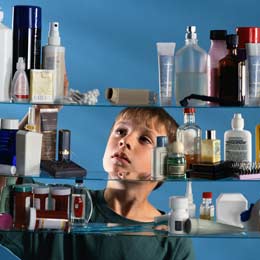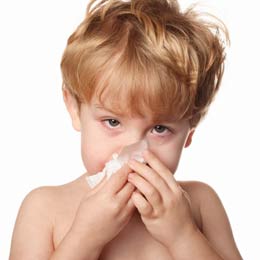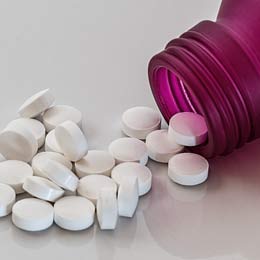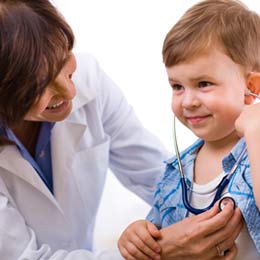

SAFETY MATTERS: Pediatric Medication Safety
It's important to give the right medicine to your child.
Give only medicines made for children: Children are not ‘small’ adults, their bodies are less developed.
Adult medicines given to children could:
- Affect each child differently
- Can cause life-threatening side effects
Questions to Ask Your Healthcare Provider
- What is this medicine for?
- How much do I give and how often?
- What are the possible side effects?
- What are the signs of an allergic reaction?
- How do I know if the medicine is working?
- When will I know if the medicine is working?
- When do I stop giving the medicine?
- Can I give my children this medication with their other medicines, vitamins, supplements, or herbs?
General Tips for Safe Use of Medicines
DO
- Use only medicines made for children
- Store medicine out of children’s reach in its original bottle
- Carefully read the medicine label
- Know your child’s weight; doses are often weight-based
- Know the names of all the medicines your child takes
- Give an updated list of your child’s medicines, vitamins, minerals, supplements, herbs, and alternative health treatments to your healthcare provider at each visit
DON’T
- Stop medicines earlier than instructed
- Give your child other people’s medicines
- Call medicines ‘candy’
- Use for longer periods or give higher doses unless instructed to do so by your healthcare provider
Reading Labels is Important
Labels provide you with important details such as:
- The name of the medicine
- How often to take
- How much to take
- How long to take
- When to take
- How to store
Over-the-counter Medicines Not to Give Your Child Unless Advised by a Healthcare Provider
- Aspirin, even baby aspirin
- Cough medicines
- Cold medicines for children under 4 to 6 years old
- Medicines for diarrhea or constipation
- Medicines for nausea
- Medicines to make your child fall asleep
- Ibuprofen for children under 6 months
- Expectorants (mucous-thinners)
- Oral or nose spray decongestants
- Steroid creams in the diaper area and on the face
- Herbal supplements
- Antibiotic creams on small cuts and scrapes
- Teething medicines
Safe Use of Liquid Acetaminophen
There are many different brands and concentrations of acetaminophen, it is important to give right dose for child’s weight!
CONCENTRATIONS OF ACETAMINOPHEN HAVE NOW CHANGED
Old and new concentrations may still be in stores and homes including:
- 160 mg/5 mL (less strong)
- 80 mg/0.8 mL or 80 mg/1 mL (stronger)
Check the Active Ingredient section on the drug label to:
- Learn strength
- Right dose
AVOID MULTI-DOSING!
- Use ONLY the dosing device that comes with the medicine
- If your child is under 2 years old, be sure to ask your healthcare provider about right dosage
- If your child's fever lasts longer than 72 hours or does not come down with right dose, call your healthcare provider
- Don’t give more than 5 doses in 24 hours
Side Effects
Unwanted effects may occur with medicines, it is important to read the information that comes with the medicine package to learn of possible side effects. Ask your healthcare provider or pharmacist if you have any questions about possible side effects.
Vitamins and Minerals
Ask your healthcare provider before giving your child vitamins and minerals. Food provides enough vitamins and minerals for most children, large amounts of vitamins and minerals can be dangerous.
If you are advised to give your child vitamins or minerals:
- Choose the kind made for your child’s age
- Store out of your child’s reach
- Teach your child they are not candy
- Don’t use as replacement for healthy foods
Measuring Liquid Medicine
Make sure you give the right dose by using:
- A medicine syringe or dropper
- A medicine spoon
- A medicine cup
Be sure you use the correct measurement unit (teaspoon vs milliliters [mL]) and make sure your child finishes ALL the medicine.
Do not use kitchen spoons because they don’t give you an accurate measurement.
- Know the difference between a tablespoon (TBSP) and a teaspoon (TSP)
- A tablespoon holds 3 times more medicine than a teaspoon
Drug Allergies
A drug allergy is bad reaction to a medicine. Most allergic reactions cause mild symptoms, however, some can be very serious!
Call your healthcare provider or go to emergency room right away if you think child is allergic to a medication.
If your child is allergic to a medication have your child carry a card or wear a medicine alert bracelet saying that they have a drug allergy.
Safe Medicine Storage
- Store out of child’s reach and sight
- Store at the recommended temperature
- Put medicines away after each use
- When closing a medicine bottle, listen for the click to be sure the child-proof cap is locked
- Teach medicine safety to children
- Keep all medicines up, away, and out of sight
Missed Doses
Set up plan to help you remember to give medicines. For example, give medicines when your child does the usual daily activity, like after brushing his/her teeth. You can also set an alarm as a reminder of time to give the next dose.
If you miss a dose give your child the next dose as soon as you remember unless it's early time for next dose — skip the missed dose, do not double the next dose.
If you miss several doses — ask your healthcare provider what to do next.
Tips for Children Taking Daily Medicines
- Never stop unless your healthcare provider tells you to do so
- Always tell your healthcare provider and pharmacist about daily medicines
- Always talk with your healthcare provider or pharmacist before starting over-the-counter medicines
- Try to take medications at the same time every day
- Be sure to refill meds before running out
- Have a plan to make sure you have medicine in case of an emergency or disaster
Featured Article
Over the Counter Medicine Safety
Resources and important information brought to you by the National Association of Pediatric Nurse Practitioners (NAPNAP).








